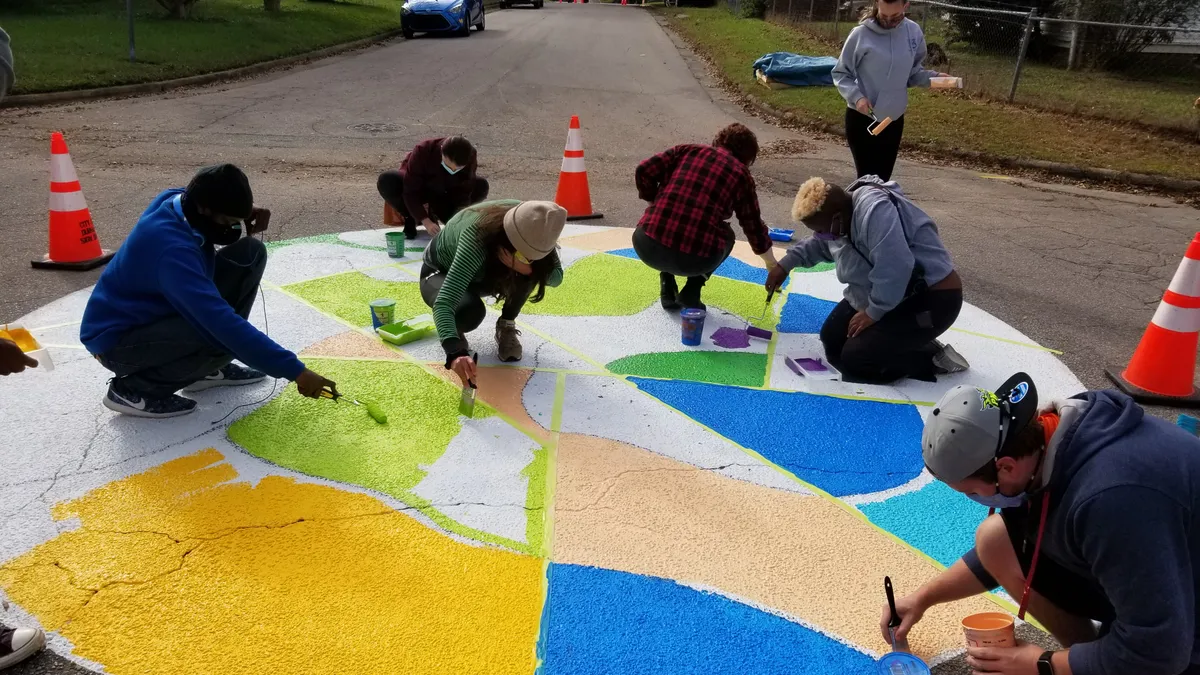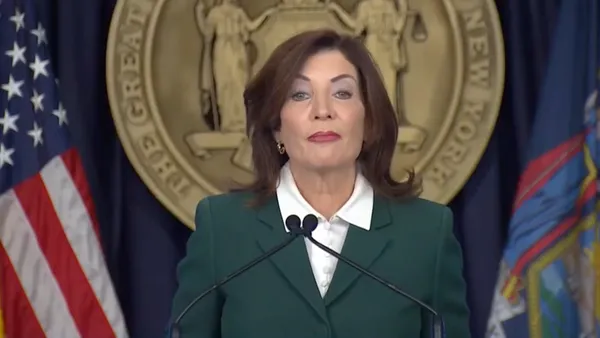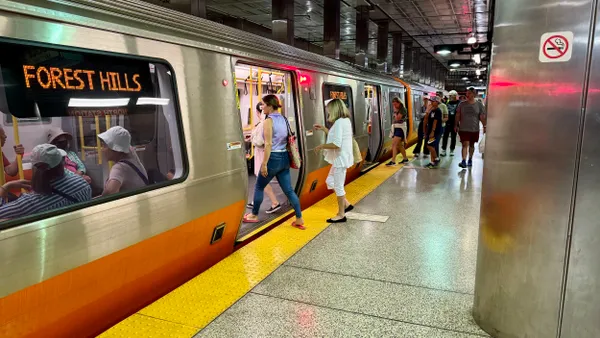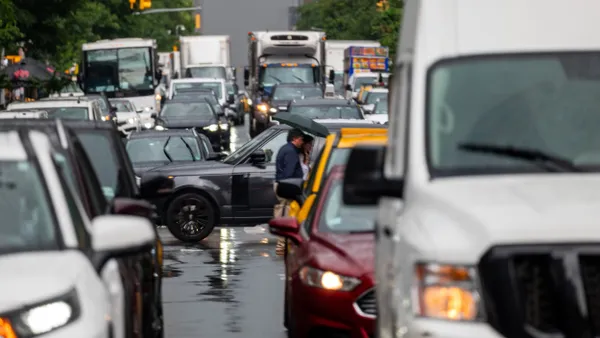The National Association of City Transportation Officials (NACTO), in partnership with Bloomberg Philanthropies, selected the winners of its Streets for Pandemic Response and Recovery grants. The following ten cities will receive $50,000 to work with local partners and "transform streets into community assets that aid in pandemic recovery:"
-
Baltimore: "Creating safer access to parks for people walking and biking by calming traffic and adding art to the street."
-
Denver: "Building 'Jazz Alley', repurposing a street in Denver’s Five Point community to provide outdoor space for local immigrant-owned businesses."
-
Fort Collins, Colorado: "Providing support for historically marginalized and underrepresented communities to participate in the city’s new asphalt art program."
-
Los Angeles: "Creating safer drop-off/pick-up zones for students walking and biking to school in two communities deeply impacted by the pandemic."
-
Madison, Wisconsin: "Removing barriers for local street vendors to operate in city parks."
-
Minneapolis: "Developing an engagement and implementation plan for traffic calming projects that center the Native American community along 18th Ave in Minneapolis."
-
Portland, Oregon: "Transforming a parking lot in East Portland into a summer food market."
-
San Francisco: "Enhancing an existing project along Turk Street in the Tenderloin [neighborhood] to provide programming and resources for unhoused residents and improve pedestrian safety and walking space."
-
Seattle: "Extending and programming an open street in the Lake City neighborhood to increase space for outdoor recreation and address community concerns about lack of safety."
-
Washington, DC: "Revitalizing the Columbia Heights Civic Plaza, which has been a critical gathering place for unhoused community members disproportionately at-risk during the pandemic."
Dive Brief:
- The National Association of City Transportation Officials (NACTO) and Bloomberg Philanthropies will provide a second round of grant funding for its member cities and local community partners to adapt their streets in response to pandemic needs.
- Ten city transportation agencies, in tandem with grassroots organizations, each will receive $50,000, technical assistance and access to a "peer network of cities and consultants" to plan and execute the projects across a six-month period. Applications are due May 20.
- Projects must center on the needs of populations disproportionately impacted by the public health, social and economic toll of the pandemic while potentially serving as models for equitable streets response recovery across the county and globe, according to NACTO spokesperson Alex Engel.
Dive Insight:
The program follows the group's Streets for Pandemic Response and Recovery effort last year, which helped 10 cities from New York to Long Beach, California, quickly adapt their streets with design tactics to support businesses and pedestrians that included slow streets, outdoor dining and pop-up bike lanes.
In Durham, North Carolina, for example, the city collaborated with its community partner, SpiritHouse, at the onset of the pandemic to determine the specific needs of East Durham residents for safe and inclusive streets.
They found that residents prioritized traffic safety over spaces for recreation, which led the city to install traffic calming measures like curb cuts and traffic circles. Overall, the city implemented nine traffic safety improvements and five shared streets, involved more than 60 community volunteers, and generated $8,000 in economic activity among local nonprofits, Black-led businesses and others.
In Long Beach, the city partnered with the Long Beach Conservation Corps to help install parklets for restaurants in underserved communities.
The city, which established a free parklet system for restaurants at the start of the pandemic, found that most businesses using the program were in affluent neighborhoods. Through the partnership and direct outreach to local businesses, the groups uncovered hurdles restaurants in underserved areas were facing that impeded their use of parklets, with their concerns over liability and petty crime being much larger barriers than cost.
The information is leading Long Beach staff to seek other ways to support "collective action" among businesses in lower-income neighborhoods, as those businesses are less likely to be part of business improvement districts.
As cities head toward a recovery, questions remain about whether they will maintain pandemic-fueled changes to streets. Obstacles to keeping those changes include the availability of staffing and resources, Engel said.
"Cities have been really stretched for a long time, dating back at least to the last recession in 2008, in terms of their own staffing for programs," he said. "Cities have been asked to do a lot with very little."
After over a year of city staff working in "crisis mode," Engel said local leaders should ensure they’re making decisions that support staff instead of burning them out.
And if cities expand the scope of their work for those efforts, he said, local leaders will need to find funding mechanisms that ensure they can provide the staffing and necessary oversight for on-the-ground programs.
Much of the federal surface transportation funding flows directly to states. And in some cases, decisions related to that funding — like highway widening — can work directly against city transportation goals, he said.
Federal coronavirus relief funding has provided some support, though, Engel said. And President Joe Biden’s $2 trillion infrastructure plan also could support new street designs, as it calls for $20 billion to fund safety improvements for all street users, including funding for state and local Vision Zero plans.
Correction: The original story gave the incorrect name for the organization that worked in partnership with the City of Long Beach to install parklets. It was the Long Beach Conservation Corps.











